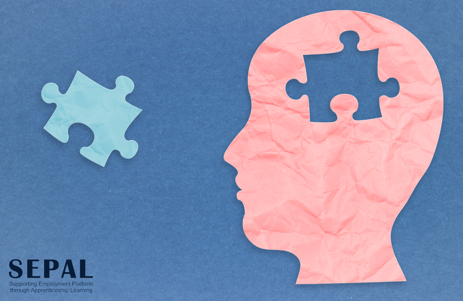Over the centuries, the human species has been tested by many epidemics and pandemics. In addition to the catastrophic pandemics, there have been epidemics localized in specific regions, without further spread. History shows that the public health consequences have several times reached alarming levels of danger to humans. The sudden appearance of the Sars CoV-2 virus and the high transmissibility of the COVID-19 disease, which caused an increase in hospital admissions, is inevitable to affect the mental health of individuals.
Along with unpredictability and uncertainty, exclusion and physical distance can lead to social isolation, loss of income, loneliness, inactivity, limited access to basic services, increased access to food, alcohol and online gambling, reduced family, and social support. The COVID-19 pandemic appears to have a global negative impact on economic and other social determinants of health in the long term.
Mental health conditions affected by negative social factors include anxiety, mood disorders and post-traumatic stress disorders, according to the Global Burden of Disease study. Worldwide suicides are increasing as a result of increased exposure to risk factors such as financial stress, job insecurity and unemployment, social isolation, reduced access to community support, barriers to mental health treatment and worsening physical health problems.
The psychosocial impact on Covid-19 patients is enormous. Confirmed patients with Covid-19 often experience psychological symptoms, such as sadness and dissatisfaction, feelings of loneliness and helplessness, depression, anxiety and phobia, irritability, and sleep deprivation. Some patients may experience panic attacks. Among others, the Covid-19 epidemic can also cause stigmatization, as well as fear of isolation, racist attitudes, discrimination and marginalization.
In addition, the consequences for vulnerable groups such as prisoners, patients in psychiatric hospitals or social care structures, people with disabilities, women experiencing domestic violence or abuse, may be even greater. These individuals are at even greater risk of psychological distress as pre-existing human rights vulnerability worsens and further mental health impacts related to COVID-19 develop.
Prolonged school closures have had a serious impact on the mental health of children, adolescents, and young adults worldwide. Many children, and among the beneficiaries of the Sepal Pro program, reported that due to the pandemic they were disoriented from their goals, especially those who were in their last year of school. Due to the confinement, their rhythm was lost, their study time was reduced and they moved away from their goals. This whole situation led many young people to depression, isolation and finally failing the final exams for the University. Their daily lives changed radically, they were faced with their inevitable mistakes and are called to plan their lives based on the new data. For this reason, today’s 19–20-year-olds are trying to make up for the lost years of the pandemic.
In conclusion, the effects of the pandemic have caused not only instability in society and the economy, but also a generalized psychological imbalance worldwide. The new everyday life and the particular way of life it entails can last for a long time, making the pandemic a multidimensional international public health problem. The impact of the disease on the psyche of both citizens needs a thorough study by researchers.
Sengkergki Dimitra
Public Health Inspector/Professional Consultant
(SEPAL PRO Project)


